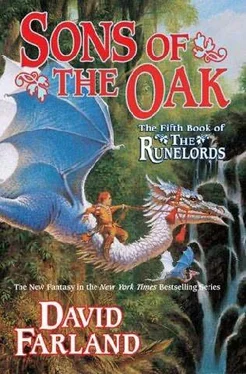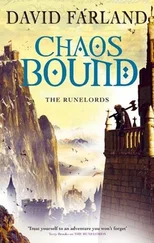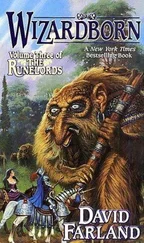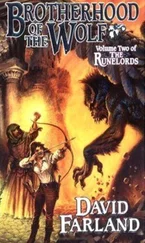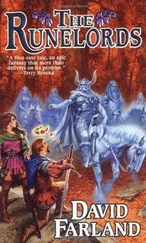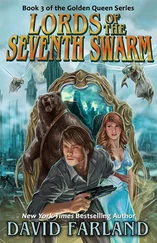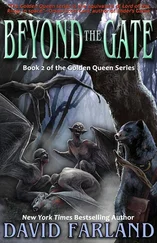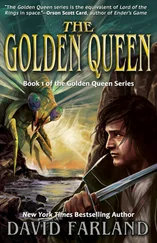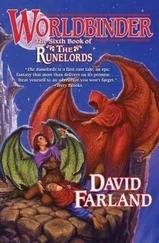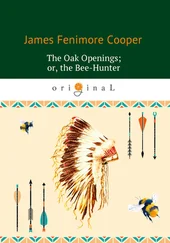David Farland - Sons of the Oak
Здесь есть возможность читать онлайн «David Farland - Sons of the Oak» весь текст электронной книги совершенно бесплатно (целиком полную версию без сокращений). В некоторых случаях можно слушать аудио, скачать через торрент в формате fb2 и присутствует краткое содержание. Жанр: Фэнтези, на английском языке. Описание произведения, (предисловие) а так же отзывы посетителей доступны на портале библиотеки ЛибКат.
- Название:Sons of the Oak
- Автор:
- Жанр:
- Год:неизвестен
- ISBN:нет данных
- Рейтинг книги:5 / 5. Голосов: 1
-
Избранное:Добавить в избранное
- Отзывы:
-
Ваша оценка:
- 100
- 1
- 2
- 3
- 4
- 5
Sons of the Oak: краткое содержание, описание и аннотация
Предлагаем к чтению аннотацию, описание, краткое содержание или предисловие (зависит от того, что написал сам автор книги «Sons of the Oak»). Если вы не нашли необходимую информацию о книге — напишите в комментариях, мы постараемся отыскать её.
Sons of the Oak — читать онлайн бесплатно полную книгу (весь текст) целиком
Ниже представлен текст книги, разбитый по страницам. Система сохранения места последней прочитанной страницы, позволяет с удобством читать онлайн бесплатно книгу «Sons of the Oak», без необходимости каждый раз заново искать на чём Вы остановились. Поставьте закладку, и сможете в любой момент перейти на страницу, на которой закончили чтение.
Интервал:
Закладка:
The travelers dismounted at the same time, and Borenson gave Fallion a long hug. He stared at Rhianna for a long moment, as if trying to place her, and then cried out in recognition.
“Rhianna?”
“Yes?”
“You look older,” he said. “You have an endowment of metabolism?”
She nodded.
“I never knew,” he said, astonished.
He looked to Fallion, his eyes locking on to Fallion’s bald head. “And Shadoath?”
“She’s dead,” Fallion told him. “Shadoath’s dead. In body, at least. I killed her, and her locus has fled.”
Sir Borenson had already seen Jaz earlier in the day. He’d flown ahead, had beaten Fallion here. He knew what Fallion had done, how he’d gone to slay Shadoath’s Dedicates. He’d known the price that Fallion would have to pay.
And now he imagined that by some miracle, Fallion had slaughtered the Dedicates and then slain Shadoath in single combat.
It was not an unreasonable leap of the imagination. The boy was well trained for battle; he was growing tall and strong. And he was a flameweaver.
He saw pain in Fallion’s eyes, and the weariness that can only be known by those who have witnessed terrible evil. He saw light in Fallion’s eyes, like a fire, endlessly burning.
He’s done it, Borenson thought. His hands are every bit as bloody as mine.
Borenson found himself weeping, crying in relief to know that both Rhianna and Fallion lived, but crying more for the innocence that they had lost.
51
Weeks later, long after the uproar at Garion’s Port died down, Borenson and Myrrima found the house that they had once promised to Rhianna and the children.
The new home lay on the edge of a town called Sweetgrass, fifty-seven miles upriver from the Ends of the Earth. So far inland, the stonewood trees were all but a memory. To each side of the valley, the land rose precipitously into red-rock canyons with their fantastic bluffs sculpted by wind, their hills of petrified sand dunes, and their majestic sandstone arches.
But there in Sweetgrass the hot hill country was still far away, as was the dense forest at the ocean’s edge. Instead a clear river ran down out of the canyons, through rolling hills, to form a rich alluvial plain, and there in the deep soil, grasses grew thick and tall.
Land like this wasn’t to be found anymore on Landesfallen, Borenson was told by a local farmer. There were places that you could homestead, desert hillsides so barren that goats could starve even with fifty acres to forage.
“I already own a piece of land like that,” Borenson had said with a laugh.
But this was rich country, grabbed up by settlers eight hundred years in the past. An old widow owned the homestead, the last in her line, and she could no longer maintain it. The farm had fallen into disrepair, all but her little square garden of flowers and vegetables out by the back porch.
So Borenson took his family to have a look. He had heard many a farmer curse the poor soil on their land back in Mystarria, and so he disregarded the shabby state of the cottage and barns, the fallen stones from the fences.
Instead, he gauged the farm by its soil alone. He took a shovel and went out into the fields and began to dig. The topsoil was rich and black, even to a depth of three feet. No hint of sand or clay or gravel or rock-just rich loam.
Land like this is a treasure greater than gold, he knew. Land like this will feed my children for generations to come.
As he dug, the kids raced along the river and chased up a pair of fat grouse and a herd of wild rangits. Little Erin thrilled to see turtles in the millpond and fat trout in the river.
It was paradise.
So Borenson bought the land with its thatch-roofed cottage; its stone fences and a pair of sway-backed old milk cows; its pond full of perch and pike and singing frogs with a quaint mill there at the river’s edge; its rope swings and rolling green meadows filled with daisies; its orchard with cherry trees and apples, pears and peaches, apricots and almonds, black walnuts and hazelnuts; its vineyard full of fat grapes and the wine press that hadn’t been used in twenty years; its dovecotes and doves; its horse corral where a tabby cat lived; and its old cattle barn where the owls nested.
It was, quite frankly, the kind of place that Borenson had only dreamed about, and though he knew little of farming, the land was fertile enough to be forgiving.
Even a fool like me couldn’t botch it, he thought as he opened the barn door and found a plow.
He looked at the rusty old thing and wondered how to sharpen it.
Much as I would a battle-ax, I guess.
There so far from the coast, the days were free of fog and rain. The sunlight filled the valley each morning like a bowl, so that it seemed to spill out everywhere.
And life grew easy. The children found their smiles and learned to be children once again. It didn’t happen in a day.
There were wars in Heredon and Mystarria, and in various far places.
Borenson heard about it that fall at Hostenfest.
Fallion’s kingdom is slipping away, he thought.
Heredon seemed so far away, it could have been on the moon. And Fallion had been a prince so long ago, it could have been never.
Fallion came home that Hostenfest, as did Draken. Both of them had quit the Gwardeen, giving up their graaks. Fallion’s hair had begun to grow back. It looked only as if it had been cropped short.
“I’m too heavy to ride anymore,” Fallion said, and he went out on the farm and helped bring in the harvest, picking buckets full of apples and laying up a store of winter wheat as if he had never been a Gwardeen.
Unknown to his foster parents, Fallion still kept watch, as he had while serving in the Gwardeen. Sometimes he would climb the hill out behind the house and peer down over the valley. From its height he could see all of the cottages in Sweetgrass, and many of them up and down the river. He’d light a small fire, and by its power he would peer about, into the souls of men.
He could see them, even down in their cottages, their soul-fires burning brightly, guttering like torches; if any of them had borne a shadow, he would have known.
But as the weeks and months dragged on, he realized that there would be nothing to see. The loci feared him. They would stay away.
He did not wonder at his destiny any longer. His father had been the Earth King, the greatest king that the world had known, and Fallion had no desire to try to walk in his father’s footsteps. He did not long to build armies or fight wars or squabble with barons over the price of their taxes or lie awake at night with his mind racing, trying to decide the fairest punishment for some criminal.
I am something different from my father. I am the torch-bearer.
Shadoath was still alive, he knew. He had been too far away from her to burn the locus when he released his light. But he had scarred her.
What his destiny might be, he did not yet know, but he did not fret about it. He left that to Borenson.
He does a good job of it, Fallion thought. The old guardsman was still protective of Fallion, and probably always would be.
Fallion practiced with his weapons for no fewer than three hours per day. He grew more and more skilled, showing blinding speed and more natural talent than any young man should have.
After all, he was still a Son of the Oak.
But he lost some of his drive, his consuming need to be better than his opponents.
I will not win this war with a sword, he knew.
And in time, even he seemed to find his smile. One autumn morning as Myrrima and Talon were busy in the warm kitchen baking apple tarts, he came from hunting for mallards alongside the river, and Myrrima saw him smiling broadly.
Читать дальшеИнтервал:
Закладка:
Похожие книги на «Sons of the Oak»
Представляем Вашему вниманию похожие книги на «Sons of the Oak» списком для выбора. Мы отобрали схожую по названию и смыслу литературу в надежде предоставить читателям больше вариантов отыскать новые, интересные, ещё непрочитанные произведения.
Обсуждение, отзывы о книге «Sons of the Oak» и просто собственные мнения читателей. Оставьте ваши комментарии, напишите, что Вы думаете о произведении, его смысле или главных героях. Укажите что конкретно понравилось, а что нет, и почему Вы так считаете.
